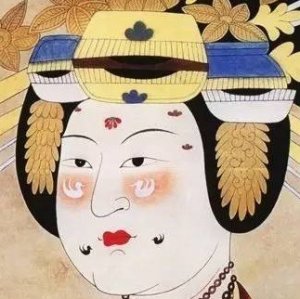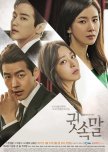PROPER MINDSET
What to expect: a festival of backstabbing.
Don't watch it if you despise convenient plot points, because almost every single twist and turn here is exactly this.
Imagine a storyboard, an intricate and tensed network of possible outcomes. As the story flows, it forces some lines to close down. Some chess pieces are bound on their positions, limiting the movement of others. Some are taken down (destroying evidence is a recurring theme of the first half or so - which, realistically speaking isn't a wisest move on a characters' part, but it's necessary for the plot to move forward; once a deal is finished, it's impossible to restore the former status (but hey, there's a twist on this too!)).
The first episode is a gateway of sorts, filtering out the viewers who aren't for this kind of story (the controversial part is even in the official trailer). A journalist gets killed, his friend framed for it, and a judge known for his integrity blackmailed to announce him guilty. Framed man's daughter seeks the judge's help, but feels betrayed in the end and sets him up, trying to create a pressure point on him. He ends ups tangled between Taebaek law firm's all-reaching influences and her blackmail, facing an impossible choice. Sprinkle with hints of latest political scandals from real life and you have a Taebaekgate of your own.
WORLDBUILDING
There are no right choices here. It's a bleak and ruthless world in which power overcomes truth and justice can be bought. Everyone important knows each other and sits in Taebaek pocket. The law firm serves as a symbol here: it recruits its employees from the elite lawyers, prosecutors and judges by orchestrating their downfall from behind and generously offering them a place to stay. Then it feeds on their former reputation and abilities.
Many people complained that a hero introducted as just and incorruptible breaks so easily and turns shattered and 'spineless' during first few eps, but that's the point. 'Whisper' suceeds in creating a sense of encirlement, hopelessness and inevitability.
CHESS PIECES
Characters' cunnery manifests in being in right places at right time with right people and smirking knowingly. They're smart enough to forsee one or more moves of the opponent ahead, but it doesn't mean they don't lower their guard from time to time. And yes, deadpan and smirk (and furrowed brows…) are dominant expressions, but first, I don't think it was actors choice, two, there's much more to it (a honourable mention for Hyung Mook, let's hope to see more of him in the dramas).
There's no clear, progressic character development, only people being poked from different angles and reacting accordingly. In a sense, it's not about Dong Joon and Yeong Joo substantially changing at all, because those two (especially she) were badass from the start, only their means were limited. For them, it's about achieving their goals. They come to their original point, only stronger and calmer. What changes the most is everyone around them losing their comfort, realising that the rotten world they know so well affects them too, that they too could also fall prey of a betrayal, not just stage it for others, and that people they trust and love won't always put their good first. All the sense of comradery in crime falls apart.
ROMANCE TAG
There's a love line and it stopped me for some time from even starting this. (Two, actually, but I don't want to completely rob you out of feeling smart and perceptive in a first few eps.) Its existence may or may not feel a little forced. It develops gradually and for the better part of the show consists mainly of male lead spacing out watching female lead being awesome, his gaze tinted with guilt. If you don't feel like watching a drama with a romance tag, you can safely ignore that for the first 12 episodes or so and pretend they're just partners with a hostile start, reaching an adorable intimacy later [here would be a gif of Dong Joon stealing a bite of Yeong Joo's salad from her plate].
However, the important part is: they both have agency during the show, can act separately and aren't overly protective. In the end, them developing feelings for each other serves as just another pressure point.
I could say there's a 'strong female lead' (and it applies to both to various extent), but the thing is, not a single character is gender-limited to begin with. They aren't forced to act or behave like males or females at all.
Also - the poster is right. It's not about main couple and their vengance only, all four characters are equally important. I'd even argue that the other two carry the story once the things between the former are roughly settled.
What it doesn't depicts, are four fathers. There's a rivalry and resentment between Choi Il Hwan and Kang Yoo Taek and it cast a shadow on their children. Lee Dong Joon has family issues too. But all of this is treated as a mean to a purpuse.
17 HOURS OF YOUR LIFE
I tend to avoid crime/law/suspense/mystery/… dramas longer than 10-12 episodes, because stretching it further calls for people running in circles like a headless chickens and creating misunderstandings that could have been easily avoided if they just stopped and used their brains for once. Not a case here. On the contrary, obstacles come from constant betrayals on every front and people trying to protect oneself on other's expense. The pacing is fine. It takes some time to dismantle stalemates within stalemates and get enough power to force the truth. When this drama does prolong some event or a threat, it does it in such a manner to close all exits but one. For example, you can see someone soon-to-be framed for something at the beginning of the episode, but it takes some preparations to make sure that person will have little to no possibility to get out, and if s/he was taken sooner, s/he could save him/herself much easier (enters a fire destoying what little evidence have left). It's logical and kinda mechanical.
Anyway. I didn't skip a scene, which is something to brag for me these days. There was a week-long break forced with the presidental election coverage, but it's not noticeable. Recaps and flashbacks are minimal if any during the better part of the show, but there's more towards the end, because it was originally written as a 16 episode drama.
It's not super realistic in details, but uncanny in essence. The story is cleared out of all the accidental clutter and wholly focuses on the main plot and connected subplots showcasing the main players. Don't expect much of legal cases or police investigation. They do work, but it mostly serves as a setting since they don't meet mundane problems or unrelated cases. If something comes up, it's used as an exposure point, to reveal something from the past or to create a new problem that can be used against someone. Characters have only skeletal backstories - and for me it works. For many it doesn't.
Generally speaking, if you don't feel an urge to cheer for your characters, but rather shake them, throw on an arena and see who'll last, you've found yourself something to watch.
MUSIC
Tolerable and sparsely used for a kdrama standards, mostly instrumentals and background noises (clock ticking etc). Main theme is a latin chorus (with a hint to an early plot point), but it's nowhere near as pretentious as say, K2.
VISUALS
That's the biggest forte for me. First, it's stylish, two, it's fitting. It heavily relies on contrasts. Taebaek resides in a fortress-like building, a huge grey cube with slot-like windows. (Of course it has an open roof for dramatic conversations in the wind, duh.) It's interior is all glass, chromium, highly polished marble and some rough stone on the walls. Tight, dimly lit corridor leading to the owner's office ends with an anti-chamber filled with a terra cotta army and two hostess taking away all electronic devices from the guests. It's an example, but there are many locations and they all match the common theme. Interior decorations items are used within the plot. People mostly wear elegantly matte fabrics and everyone is coordinated for the sake of coherent screencaps. Even PPL doesn't hurt the eyes that much. The lighting is cold, blueish and artificial and it bonds all the scenes for the scale I haven't seen before in a kdrama. It's on par with Cruel City's grittiness and darkness or W clear division between two worlds when it comes to a coherent worldbuilding.
HUMOUR SAMPLE
'My father is not here today, they are having a praying meeting in their community, so the embezzlement of the temple funds won't be found out.'
Pros:
- Highly motivated, flawed, charismatic characters
- Reasonably smart intrigue (forming alliances and shuttering it, finding weak points and exploiting it)
- Good acting
- Even pacing, engaging power struggles, focused storytelling, clear and somewhat elegant structure
- Visually pleasing (and it's an integral part of the worldbuilding)
- Comic relief isn't overused, neither is the story too dry and serious
- not makjang.
Neutrals/cons:
- Convenience everywhere. Some things that never have any business be written take tangible form.
- Music fits the mood and action, although it ranges from forgettable to 'dear lord, not K2 again'
- Romance feels forced an unneeded.
- Not very engaging on an emotional level (there's a lame attempt of holding the viewer hostage with making one character badly sick in the middle, but I still don't really care for anyone or anything). It brings out repulsion, pity maybe, a satisfaction from people meeting their end and justice triumphing, but that's it.
Esta resenha foi útil para você?
























